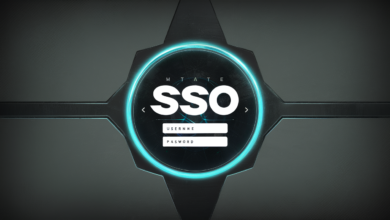In today’s fast-moving digital era, people constantly look for concepts and practices that can help simplify their lives while maintaining productivity, creativity, and balance. One such idea gaining attention is simpciry. This term, though not yet widely mainstream, embodies the principles of simplicity, clarity, and efficiency in both personal and professional contexts. By embracing simpciry, individuals and businesses can reduce unnecessary complexities, increase focus, and achieve greater satisfaction in everyday activities.
Simpciry is more than just a word; it is a lifestyle and a philosophy that combines minimalism, clarity of thought, and effective execution. This comprehensive article will explore the various dimensions of simpciry, its importance, practical applications, and how it can reshape the way we live and work.
What is Simpciry?
Simpciry refers to the deliberate effort to eliminate clutter, distractions, and confusion, allowing space for what truly matters. It encourages a streamlined approach where unnecessary details are removed, making room for clarity and productivity. Unlike minimalism, which often focuses on material possessions, simpciry can be applied to ideas, decisions, communication, and digital presence.
At its core, simpciry is about reducing noise and focusing on essence. Whether it is simplifying daily routines, creating user-friendly digital platforms, or maintaining clear business strategies, simpciry acts as a guiding principle.
The Importance of Simpciry in Modern Life
Life in the digital age has become overwhelming with constant notifications, endless choices, and over-complicated processes. Simpciry is important because it brings balance to this chaos. By prioritizing simpciry, we can achieve:
-
Mental Clarity: Less clutter means reduced stress and improved focus.
-
Productivity: Simple processes are easier to follow and execute.
-
Efficiency: Simpciry saves time and resources.
-
Sustainability: A simpler lifestyle often means fewer unnecessary consumptions.
-
Creativity: With distractions removed, creativity thrives.
The demand for simpciry continues to grow as more people realize that complexity often leads to burnout and dissatisfaction.
How to Apply Simpciry in Everyday Life
1. Simpciry in Home and Lifestyle
Applying simpciry at home means adopting decluttering practices, choosing functional designs, and focusing on meaningful possessions rather than accumulating items. For example, a kitchen with only essential tools can enhance efficiency and reduce frustration.
2. Simpciry in Work
At the workplace, simpciry is about clear communication, straightforward strategies, and streamlined workflows. Instead of overloading meetings with jargon or endless slides, focusing on direct goals ensures better outcomes.
3. Simpciry in Digital Spaces
In an age dominated by apps, websites, and social media, simpciry in digital design is crucial. Clean interfaces, intuitive navigation, and minimal distractions enhance user experience and ensure higher engagement.
4. Simpciry in Personal Growth
Practicing simpciry in personal development means avoiding the trap of multitasking and focusing on one skill or habit at a time. This approach makes goals more achievable and sustainable.
The Philosophy Behind Simpciry
The philosophy of simpciry is deeply connected to mindfulness and intentional living. It reminds us that more is not always better, and true value comes from clarity and depth rather than abundance. By following simpciry, we learn to prioritize quality over quantity, experience over possessions, and purpose over distraction.
This philosophy aligns with the timeless wisdom of great thinkers who advocated for simplicity as the path to happiness and wisdom. Whether in business strategies or personal lifestyles, simpciry brings focus back to essentials.
Simpciry and Productivity
One of the strongest arguments for simpciry is its effect on productivity. Complex systems often slow down progress, while simpciry accelerates results. By eliminating unnecessary steps and focusing on core actions, individuals and teams achieve more in less time.
For example, companies that adopt simpciry in project management often experience fewer errors, faster completion rates, and higher employee satisfaction. Similarly, individuals who embrace simpciry in time management gain more control over their schedules.
Benefits of Simpciry
Embracing simpciry offers a wide range of benefits:
-
Less Stress: Fewer complications mean fewer worries.
-
Better Focus: Simpciry allows concentration on what truly matters.
-
Time Savings: Simplified processes are more efficient.
-
Improved Relationships: Clear communication strengthens trust.
-
Greater Satisfaction: Living simply leads to a sense of contentment.
These benefits show that simpciry is not just a choice but a strategy for long-term well-being.
Simpciry in Business and Innovation
Businesses that understand the power of simpciry stand out in competitive markets. Companies like Apple and Google have thrived by offering simple, user-friendly designs that appeal to millions. Simpciry in branding ensures clear messaging, making products and services easier to understand and trust.
Innovation is also boosted by simpciry, as straightforward ideas are easier to develop and implement. Instead of overwhelming consumers with features, offering simple yet effective solutions often creates more loyal customers.
Challenges in Practicing Simpciry
While simpciry brings many advantages, practicing it consistently can be challenging. The modern world encourages complexity through consumerism, multitasking, and information overload. Breaking free from this cycle requires conscious effort, discipline, and patience.
Some common challenges include:
-
Overcoming the fear of missing out (FOMO).
-
Resisting societal pressure to accumulate more.
-
Learning to prioritize essentials over distractions.
Despite these challenges, the long-term rewards of simpciry outweigh the difficulties.
Practical Tips to Start Living with Simpciry
-
Declutter daily – Remove one unnecessary item from your life every day.
-
Limit digital distractions – Turn off notifications and use apps mindfully.
-
Simplify decisions – Create routines to reduce decision fatigue.
-
Focus on essentials – Ask yourself what truly matters before committing.
-
Practice mindfulness – Stay present and intentional in daily actions.
By implementing these tips, anyone can gradually transition toward a life built on simpciry.
Conclusion
Simpciry is more than just a trendy concept; it is a powerful approach to living and working in a world that often glorifies complexity. By adopting simpciry in lifestyle, work, relationships, and digital presence, individuals and businesses can achieve clarity, focus, and long-term satisfaction. In a time where distractions are everywhere, simpciry acts as a guiding principle to help us return to what truly matters.
Frequently Asked Questions (FAQ) About Simpciry
Q1: What does simpciry mean?
Simpciry means simplifying life, work, and digital spaces by focusing on essentials and removing unnecessary complexities.
Q2: Is simpciry the same as minimalism?
No, while both emphasize reduction, simpciry focuses more on clarity, efficiency, and functionality, while minimalism often highlights material possessions.
Q3: How can simpciry improve productivity?
By removing distractions and streamlining processes, simpciry enables individuals and businesses to focus better and achieve goals faster.
Q4: Can businesses benefit from simpciry?
Yes, businesses thrive when they apply simpciry in design, communication, and customer experience, leading to stronger engagement and loyalty.
Q5: How can I start practicing simpciry today?
Begin by decluttering your space, limiting digital distractions, simplifying routines, and focusing on what adds real value to your life.





